Filter by
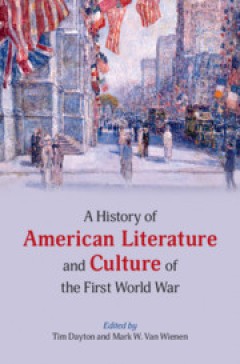
A History of American Literature and Culture of the First World War
In the years of and around the First World War, American poets, fiction writers, and dramatists came to the forefront of the international movement we call Modernism. At the same time a vast amount of non- and anti-Modernist culture was produced, mostly supporting, but also critical of, the US war effort. A History of American Literature and Culture of the First World War explores this fraught …
- Edition
- -
- ISBN/ISSN
- 9781108615433
- Collation
- -
- Series Title
- -
- Call Number
- -
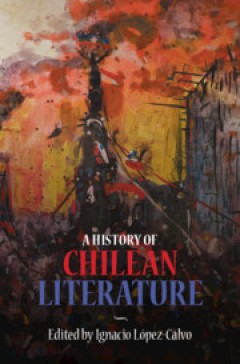
A History of Chilean Literature
This book covers the full range and diversity of Chilean literature from the times of the Spanish conquest to the present. By emphasizing transnational, hemispheric, and global approaches to Chilean literature, it reflects the relevance of themes such as neoliberalism, migration and exile, as well as subfields like ethnic studies, and gender and sexuality studies. It showcases the diversity of …
- Edition
- -
- ISBN/ISSN
- 9781108766616
- Collation
- -
- Series Title
- -
- Call Number
- -
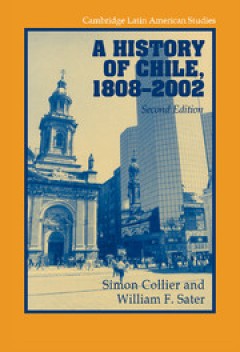
A History of Chile, 1808–2002
A History of Chile chronicles the nation's political, social, and economic evolution from its independence until the early years of the Lagos regime. Employing primary and secondary materials, it explores the growth of Chile's agricultural economy, during which the large landed estates appeared; the nineteenth-century wheat and mining booms; the rise of the nitrate mines; their replacement by c…
- Edition
- -
- ISBN/ISSN
- 9780511991189
- Collation
- -
- Series Title
- Cambridge Latin American Studies
- Call Number
- -
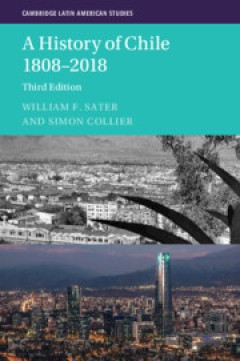
A History of Chile 1808–2018
As Chile has continued to grow and prosper in the twenty-first century, this new edition of the definitive history of the country brings the story of its political, social and cultural development up to date. It describes how Ricardo Lagos and Michelle Bachelet, both highly educated Socialists, modernized the country and integrated new interests into Chilean political life, and how the billiona…
- Edition
- -
- ISBN/ISSN
- 9781009170222
- Collation
- -
- Series Title
- Cambridge Latin American Studies
- Call Number
- -
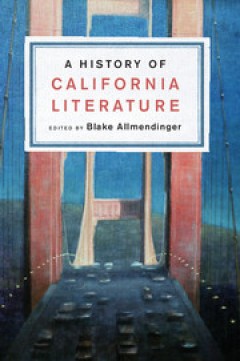
A History of California Literature
Blake Allmendinger's A History of California Literature surveys the paradoxical image of the Golden State as a site of dreams and disenchantment, formidable beginnings and ruinous ends. This history encompasses the prismatic nature of California by exploring a variety of historical periods, literary genres, and cultural movements affecting the state's development, from the colonial era to the t…
- Edition
- -
- ISBN/ISSN
- 9781107280359
- Collation
- -
- Series Title
- -
- Call Number
- -
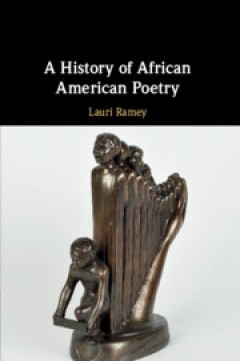
A History of African American Poetry
African American poetry is as old as America itself, yet this touchstone of American identity is often overlooked. In this critical history of African American poetry, from its origins in the transatlantic slave trade, to present day hip-hop, Lauri Ramey traces African American poetry from slave songs to today's award-winning poets. Covering a wide range of styles and forms, canonical figures l…
- Edition
- -
- ISBN/ISSN
- 9781139548939
- Collation
- -
- Series Title
- -
- Call Number
- -
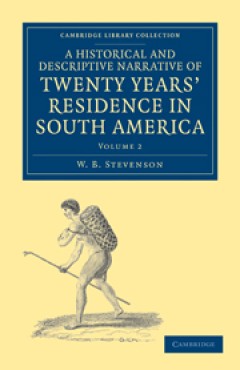
A Historical and Descriptive Narrative of Twenty Years' Residence in South Am…
In 1804 when W. B. Stevenson (fl. 1803–25) arrived on the small island of Mocha, just off the coast of South America, he stepped onto a continent on the brink of mass revolution. Over the next twenty years, he had an extraordinary range of experiences: as a traveller, a Spanish government official, a prisoner, and as secretary to an ex-Royal Navy admiral turned revolutionary. In this three-vo…
- Edition
- -
- ISBN/ISSN
- 9781139060592
- Collation
- -
- Series Title
- Cambridge Library Collection - Latin American Studies
- Call Number
- -
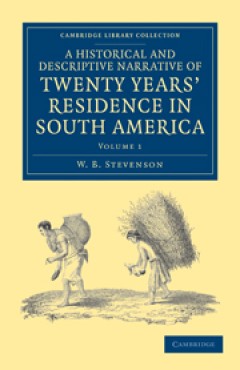
A Historical and Descriptive Narrative of Twenty Years' Residence in South Am…
In 1804 when W. B. Stevenson (fl. 1803–25) arrived on the small island of Mocha, just off the coast of South America, he stepped onto a continent on the brink of mass revolution. Over the next twenty years, he had an extraordinary range of experiences: as a traveller, a Spanish government official, a prisoner, and as secretary to an ex-Royal Navy admiral turned revolutionary. In this three-vo…
- Edition
- -
- ISBN/ISSN
- 9781139060585
- Collation
- -
- Series Title
- -
- Call Number
- -
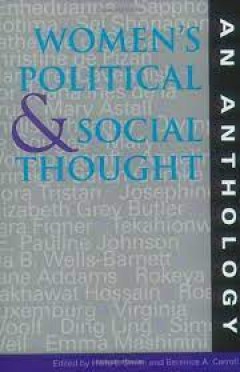
Women's Political and Social Thought An Anthology
Women's Political and Social Thought: An Anthology is the first collection of source readings of women's important writings in political and social theory from ancient times to the twentieth century. It fills a major gap in materials available for teaching the history of political thought and opens paths for exploring the rich and diverse contributions of women as creators of theory. Not confin…
- Edition
- -
- ISBN/ISSN
- 9780253069023
- Collation
- -
- Series Title
- -
- Call Number
- -

A Grand Army of Black Men Letters from African-American Soldiers in the Unio…
The Civil War stands vivid in the collective memory of the American public. There has always been a profound interest in the subject, and specifically the participation of black Americans in and reactions to the war and the war's outcome. Almost 200,000 African-American soldiers fought for the Union in the Civil War. Although most were illiterate ex-slaves, several thousand were well-educated, …
- Edition
- -
- ISBN/ISSN
- 9780511663574
- Collation
- -
- Series Title
- Cambridge Studies in American Literature and Culture (63)
- Call Number
- -
 Computer Science, Information & General Works
Computer Science, Information & General Works  Philosophy & Psychology
Philosophy & Psychology  Religion
Religion  Social Sciences
Social Sciences  Language
Language  Pure Science
Pure Science  Applied Sciences
Applied Sciences  Art & Recreation
Art & Recreation  Literature
Literature  History & Geography
History & Geography